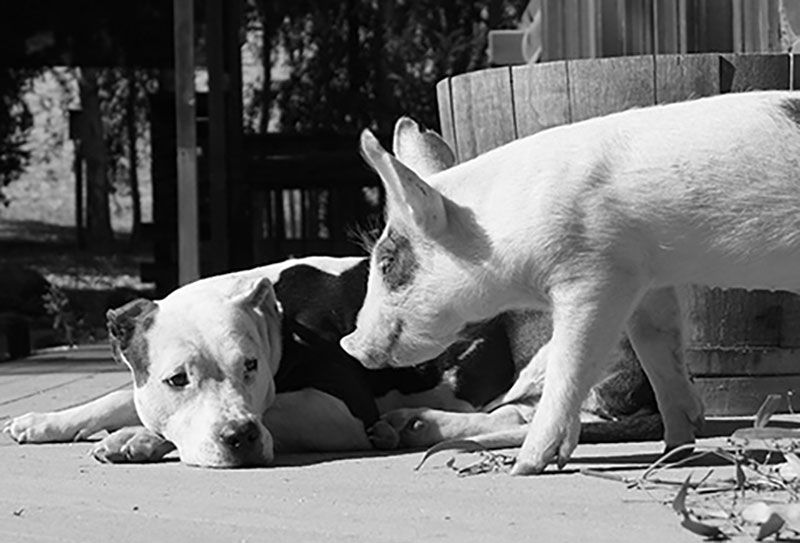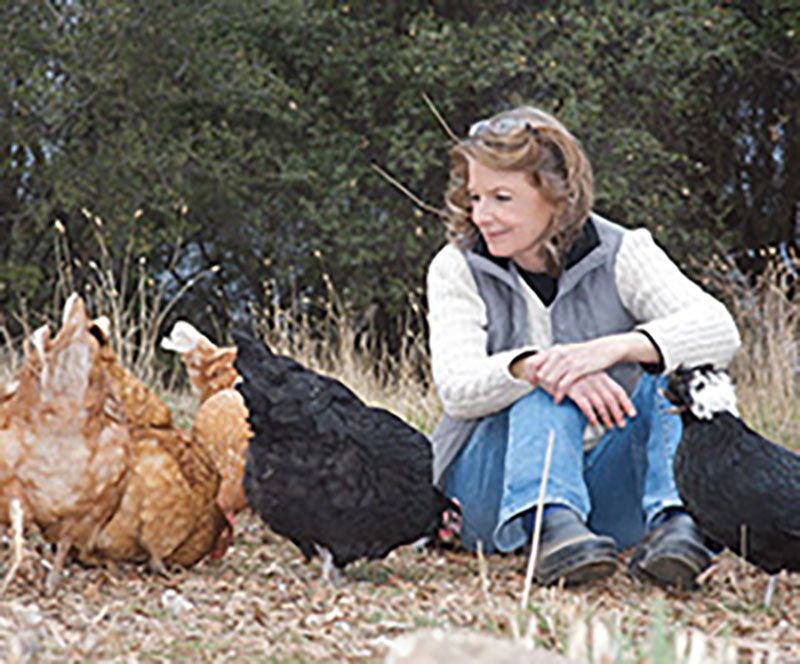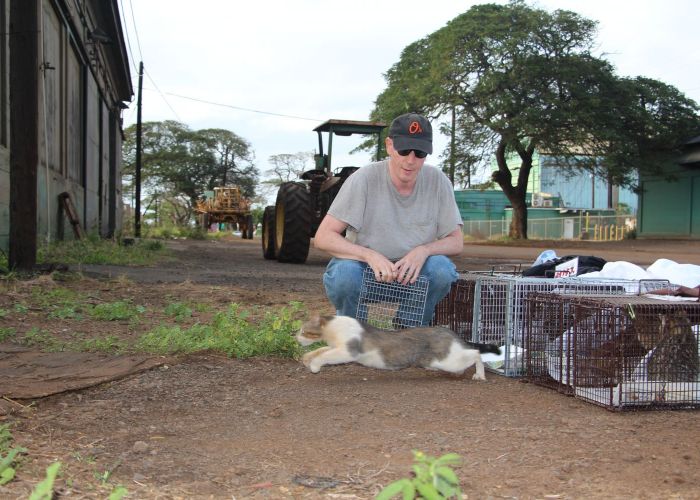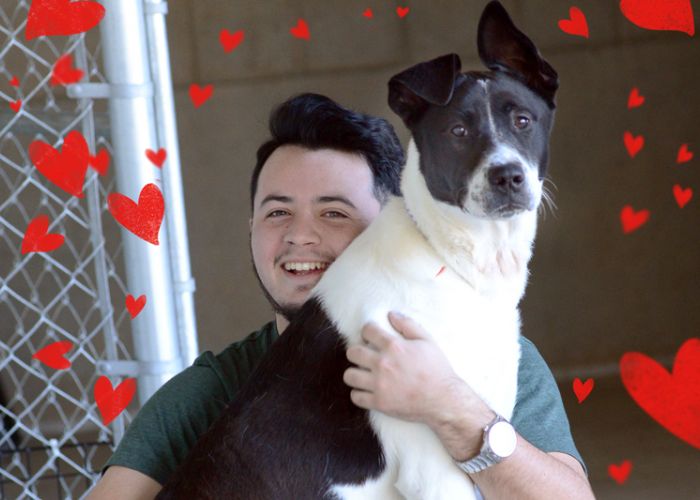To protect...and serve?
Shelters wrestle with the issue of humane menus for their events

It was Zelda the piglet who got Kim Sturla thinking.
More than 25 years ago, Sturla was working in administration at a suburban humane society surrounded by farmland when an animal control officer brought in the rescued piglet. Sturla and her officemates heard Zelda squealing, came out to see what was going on, and quickly fell in love.
They set up the adorable 20-pounder in a kennel, visited frequently, and shared their sandwiches with her at lunchtime, Sturla says. The adoption staff tried to find her a new home but came up empty. A few potential “adopters” wanted to take Zelda home to barbecue her, and naturally the shelter declined to adopt her out to be slaughtered.
Yet ironically enough, the shelter soon hosted a fundraising event, and the menu included ham.
“That, for me, was a big ‘aha’ moment—why we will embrace some species and not others, and why we will embrace even the same species, but it’s situational,” recalls Sturla, now the executive director of Animal Place, a sanctuary for farm animals that operates two facilities in northern California.
In Sturla’s view, it’s inconsistent for humane organizations to rescue many types of animals—from dogs and cats to chickens, pigs, and horses—but then choose at their fundraisers and board meetings to serve meat and dairy products derived from some of those same species. “I would love to see our SPCAs and our humane societies have a consistent message of who they protect and who they don’t.”
Sturla would like to put the issue on the table—and see shelters take animal products off it. Animal Place has recently relaunched its “Food for Thought” program, which encourages shelters to not serve animals or their byproducts at their events.

Lose the Meat, Lose the Money?
But the issue is far from clear-cut. A lively online discussion of the topic took place in January on the Society of Animal Welfare Administrators’ (SAWA) listserv. One shelter director wrote that her organization’s 2012 gala offered only vegetarian or vegan options, but the negative feedback from people wondering where the meat was prompted a switch last year to a menu that included chicken.
Jen Swanson, executive director of the Baltimore Humane Society in Maryland, commented on the SAWA listserv that her board in the past “has almost come to blows over this.” As a vegan, Swanson would love to offer a fully vegetarian or vegan menu, but she doesn’t think the shelter’s mostly conservative donor base would accept it, and the next year’s gala might be a total flop.
Baltimore Humane always offers a vegetarian or vegan option at its events, Swanson says, but few people check those boxes. The organization’s annual Black Tie and Tails gala last year attracted about 250 people; no one selected the vegan option, and only 18 attendees opted for a vegetarian meal—and some of them were staff or board members.
Swanson attributes the lack of interest in veg-friendly meals to her shelter’s location; in spite of a name that suggests an urban locale, Baltimore Humane is actually located on 365 acres in rural horse country. Shelters in certain areas switching to an animal-friendly menu, she says, “may risk alienating your donor base by making them feel judged or that they’re not getting their ticket price’s worth. If you can afford to take that risk to stand up for farm animals, by all means do it, but unfortunately we’re not in that place yet.”Attitudes toward veg-friendly menus vary by region, notes Jennifer Elliott, an animal rescue volunteer and marketing director for Datamars, a Massachusetts-based microchip manufacturer. It’s common for humane conferences in the Northeast and the Southeast to be vegetarian or vegan, while “In the Southwest, there’s always meat,” Elliott says. As for the animal control workers who attend the annual Texas Unites for Animals conference, she adds, “It’s not that they’re not animal lovers, but if they don’t get some meat on the plate, those guys are just gonna revolt.”
Happy Mediums
Fortunately, animal welfare organizations struggling with menu ethics don’t have to go cold turkey (pun intended). Dietary choices are “a very personal thing,” says Joe Maxwell, vice president of Outreach and Engagement for The HSUS, noting that shelters that appear to preach at their constituents run the risk of creating a negative impression of the animal welfare movement, particularly in agricultural states.
If shelters choose to serve animal products at their events, Maxwell says, they can send a positive message by making sure that the food comes from farms that have high standards for animal care. Rather than buying meat produced by factory farms, for example, shelters can look for Certified Humane or Global Animal Partnership-certified products. “So you’re still moving the ball in the right direction, without appearing to be trying to force a vegan lifestyle off on a group of rural citizens that probably are going to really resent that,” Maxwell says.
Everyone attending an event should have a food choice they can embrace, whether they’re vegan, vegetarian, or sticking to a “refined” diet that avoids products from inhumane production systems, Maxwell says. The HSUS encourages event organizers to follow the same advice it gives to all consumers: Think about where the food is coming from and make purchasing decisions that support animal welfare, whether that means serving vegan or vegetarian meals, reducing the amount of meat served at an event, or serving animal products from farmers who meet humane standards.
Elliott, who worked for years as an event planner and volunteers for the Northeast Coonhound Rescue in the Boston area, says any organization switching to a new approach to menus for its events should do so mindfully, taking time beforehand to talk to board members and survey the membership. She’s also learned over the years that when you arrange with a hotel or caterer to provide a particular kind of food, make sure you know exactly what you’re getting. At a recent Datamars meeting at an upscale hotel, one attendee requested a vegan meal, and the hotel's initial offering was a mostly bare plate containing a “sad little tomato wrap with two asparagus spears”—for the price of a full meal, Elliott says.
The HSUS has served meatless meals at its events for years, sticking to a policy of providing good food that everyone can enjoy together—diehard vegans, flexitarians, and inveterate carnivores alike—and not spending donor dollars on animal products. “We’re not saying everyone has to be vegan or vegetarian, but we’re saying it’s certainly easy enough to skip meat for one meal a week, so your event could be that one meal,” says Betsy McFarland, vice president of The HSUS’s Companion Animals department.
The HSUS contracts with chefs who serve as consultants and menu planners, to make sure that hotels and convention centers unfamiliar with vegan food have experts on hand in the kitchen to make the food exceptional. At the organization’s annual Animal Care Expo, which draws about 2,000 people from the U.S. and abroad, McFarland regularly hears about carnivores who like what they’re eating, then do a double take when they learn it’s not really chicken. “We don’t make a big production about labeling,” McFarland adds, noting that the “vegan” label can prompt a negative response. At Expo, a notice in the show guide explains The HSUS’s food policy, but there are no signs at the buffet stations.
Luckily, it’s easier than ever these days to find meat-free alternatives. Marin Humane Society in California likes to do themed events, like a Mediterranean night featuring dishes with lots of lentils, hummus, and tahini—which are so appetizing that no one misses the meat, says Captain Cindy Machado. She also urges shelters to get resourceful: If pre-made veggie burgers are too pricey, find a staff member or a caterer who knows how to put together a bean burger.
Sturla believes most people attend shelter events because they support the organization and its work. By offering well-prepared animal-friendly food, she adds, shelters are simply demonstrating that compassion can extend to all animals.






